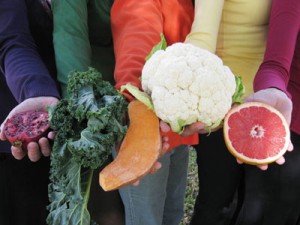
(Guest post submitted by MD Anderson Cancer Center)
Aisles in grocery stores and pharmacies are stacked with vitamins, minerals, herbs or other plants that you take in pill, capsule, tablet or liquid form. And, many of us buy these supplements and take them regularly, hoping to lower our chances of getting cancer and other diseases.
But do supplements really work wonders? Should you take them to help prevent cancer? Our experts say beware.
a??Dona??t be fooled by the label on the bottle,a?? says Sally Scroggs, health education manager at MD Andersona??s Cancer Prevention Center. a??Researchers are still unsure about whether or not supplements actually prevent cancer.a?? Some studies have suggested that supplements may actually increase cancer risk by tilting the balance of nutrients in the body.
Results from the Womena??s Health Study and The Physiciansa?? Health Study II found that vitamins E and C do not prevent cancer. The Selenium and Vitamin E Cancer Prevention Trial showed similar results, suggesting these supplements didna??t help prevent prostate cancer.

a??If you eat lots of vegetables, fruits, whole grains and beans, you should get the nutrients, including fiber, vitamins and minerals, your body needs to lower your chances of getting diseases like cancer,a?? Scroggs says. a??Taking a pill cana??t replace a healthy diet.a??
Not sure which foods get the job done??? See our list of recommended foods packed with cancer-fighting nutrients.
Supplements may benefit some
More research is needed to truly understand the relationship between supplements and cancer risk, according to the American Institute for Cancer Research.
Still, there are some situations when taking a supplement might do your body good. This is especially true for men and women who are not getting enough nutrients because of food allergies, genetics or chronic illnesses.
Here are a few examples of when supplements may be right for you:
- Women who are pregnant or breastfeeding
- People at risk for vitamin D deficiency
- People at risk for osteoporosis
- People at risk for B-12 deficiency
- People age 50 or older
- Vegans who consume no animal foods
Get professional advice
Thinking about taking supplements?
Speak with your doctor or a registered dietitian first. He or she can decide which pills you really need and what dose you should take. Keep in mind that there is no vitamin or supplement thata??s good for everyone.
A registered dietitian also can tell you what to look for on supplement labels. This is important because some supplement labels can be confusing or misleading. Many companies claim their pills can cure cancer when, in fact, they dona??t, according to a recent Congressional study.
a??Remember, supplements are just that a?? supplements,a?? Scroggs says. a??Even if your doctor recommends them, your top priority should be getting the nutrients you need from the food you eat.a??
Do your research and talk to your doctor before you add supplements to your diet
This article originally appeared on MD Anderson Cancer Centera??s Focused on Health e-newsletter. To read the full newsletter, click here. To subscribe to future issues, click here.
REFERENCES:
American Institute of Cancer Research
Effect of selenium and vitamin E on risk of prostate cancer and other cancers: the Selenium and Vitamin E Cancer Prevention Trial (SELECT). Journal of American Medical Association. 2009 Jan 7; 301(1):39-51.
Herbal Dietary Supplements: Examples of Deceptive or Questionable Marketing Practices and Potentially Dangerous Advice. U.S. Government Accountability Office. 26 May 2010.
Downloaded at http://www.gao.gov, 13 September 2010.
Physiciansa?? Health Study II: Vitamin E, Ascorbic Acid, Beta Carotene, and/or Multivitamins in Preventing Cancer and Cardiovascular Disease in Older Healthy Male Doctors
Vitamin E in the primary prevention of cardiovascular disease and cancer: the Womena??s Health Study. Journal of American Medical Association. 2005 Jul 6, 294 (1): 56-65.
a??
We would love to hear from you.?? Do you take vitamin and supplements??? Do you eat fresh fruits and vegetables??? How do you maintain a healthy diet?
No comments:
Post a Comment